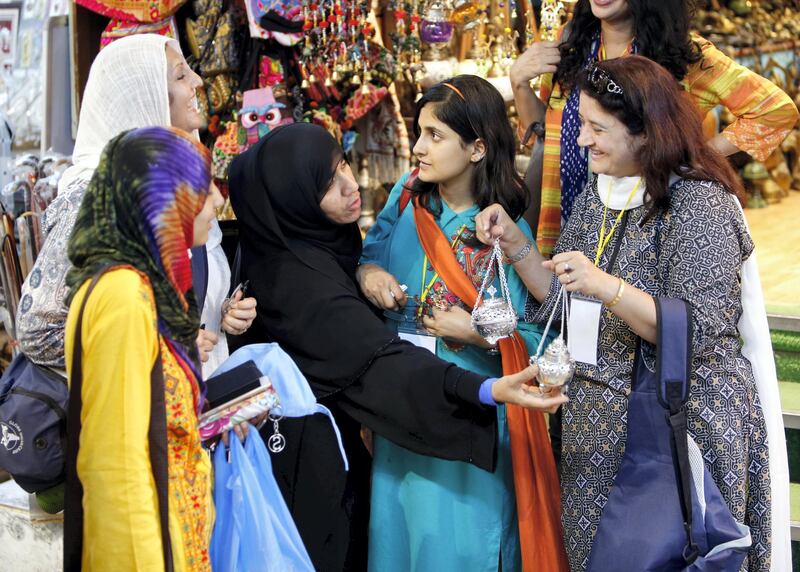About 40 per cent of working married women in Oman have a higher income than their husbands and are the primary source of income as "breadwinners" for their families, according to a study by Oman's Ministry of Social Development.
The 2019 study showed a dramatic shift in Omani homes and workplaces, and socio-economic experts say it also indicates that Omani women are now more educated and are in better career positions than their husbands.
"It is all about women wanting to be on top of things these days. Since the 1990s, more Omani women have been getting into degree programmes than their male counterparts. Why? Because they saw their mothers being totally dominated by their fathers when they were growing up," Salim Al Jufaili, a socio-economic researcher at the Open University in Muscat, told The National.
Women say they need to go one step further with their education than men to prove their worth if they want to challenge traditions.
"I studied for my bachelor's in economics and when I graduated, I immediately enrolled for my master's degree in the same subject. I felt then, and still think, men don't respect their wives if a woman is not well educated. That means we have to be one level above them," said Jokha Al Mugheiri, 36, an economist in the Ministry of Agriculture and Fisheries.
Fatma Al Hanshi, 42, has three young children whom she shares with her husband of 14 years. She says she is the main breadwinner of the family.
"I earn more than double what my husband earns. He only has a secondary school certificate and I have a bachelor's degree in social sciences. It is a matter of economy here that I should pay more towards housekeeping finances," Mrs Hanshi said.
Her experience if reflected elsewhere, too.
"The tradition that the father must be the breadwinner is fast changing in Oman. I know many families where both the wife and the husband are contributing equally, sometimes the women of the house pay more," said Mustafa Al Hikmani, who was commissioned by the Ministry of Social Development while a student at Majan University College last year.
Official statistics from the Ministry of Higher Education show there has been a change in university enrolment over the last decade, with around 65 per cent of those accepted on to degree courses women, compared to 42 per cent in the previous decade.
"Men tend to look for jobs when they finish school. That's why our higher education institutions are predominantly girls. It does not surprise me that a good percentage of mothers are becoming breadwinners in their families," said Qais Al-Qassmi, a socio-economist.







